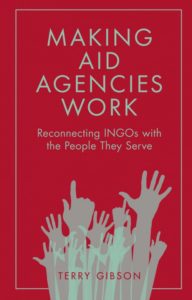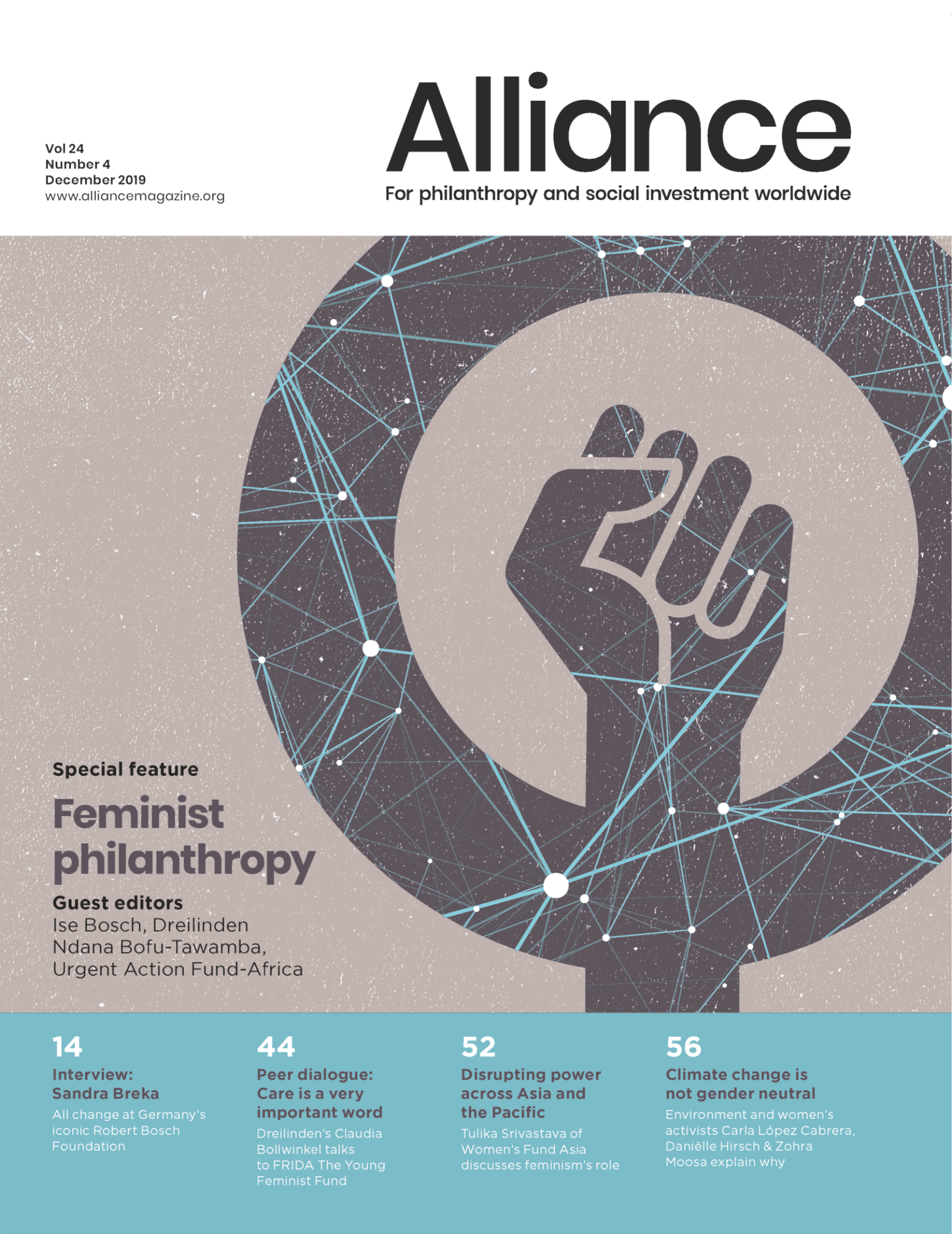 Reviewed by Mary Ann Clements, Healing Solidarity
Reviewed by Mary Ann Clements, Healing Solidarity
Terry Gibson’s book outlines the major challenges that prevent INGOs from responding effectively to the experience and knowledge of people they claim to help. It’s an accessible read drawing on many stories from the author’s experience of working in this sector.
Gibson does a good job of challenging the dichotomy between so-called development and humanitarian interventions and highlighting the disconnection between INGOs and the people and communities whom they serve. He rightly questions our preference for political and scientific knowledge above actual experience and highlights the extent to which participatory tools, meant to more effectively involve communities, have come to be used in the sector as something of a performance.
At the end of the book he proposes that INGOs should find ways to truly evolve towards what he calls the ‘Change Agent INGO’, by using ‘situated learning as a starting point for action’.
The book suggests different ways in which this transition might come about, including the creation of a new INGO, or experimentation, where existing organisations develop projects alongside their work and try to do things differently. It also outlines the possibility of network structures for building the kind of bridges and possibilities for learning and collaboration for which the ‘Change Agent INGO’ would exist.
He concludes that we need ourselves to ‘be the change’ and I agree, but I was surprised that, given its robust critique of current practice, the book didn’t really challenge the assumption that there is inherent usefulness in the INGO. While Gibson suggests that it is very difficult for large professionalised and bureaucratic structures to change, he stops short of challenging us to completely re-think how we work.
In addition, the book lacked a detailed analysis of how race and power play into the problems in the INGO sector and are rooted in injustice that we need to both resist and heal. For me, this is the real reason resources and power continue to be concentrated in the Global North.
While there is plenty of food for thought in this book, there is little about how funding should or could change. There is no mention, for example, of the participatory approaches to funding being put into practice by funders like With and For Girls Collective, FRIDA or UHAI and the book also has little to say on the potential for direct funding to grassroots work, accompanied by a re-thinking of risk, as a potential alternative to the large scale re-frame of the INGO.
As this book shows, it is usually people themselves who have the best ideas about how to change their own lives. It seems obvious that we need to find ways to direct more resources towards them. That may mean dismantling organisations and giving up our power and indeed our jobs. Until we are willing to investigate that possibility, I fear we will continue to replicate the problems Gibson clearly identifies.
About the book
Published by: Emerald Publishing Limited
Price: £24.99 (Paperback)
ISBN: 9781787695122
To order: https://tinyurl.com/Making-Aid-Agencies-Work






Comments (0)